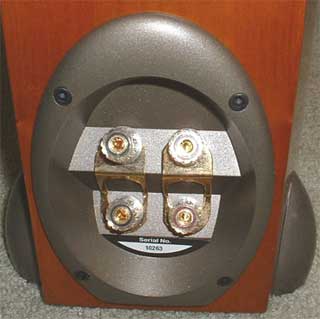- Jun 29, 2014
- 7
- 0
- 4,520
I have very little knowledge of audio equipment and speakers, especially the connection requirements. So any help is appreciated.
I have recently purchased some decent speakers, 5, of same company, different models, fairly old. So I am in need of buying an av receiver. Already have an idea of what I want, and why. 4k would be nice, 8 ohm system (so almost anything works), with avg (based on lowest speaker suggestion) 50 or so watts per channel.
For what I don't know, which is so much..
Most modern av units have remotes and room acoustics checks. If it has wifi/bluetooth/phone app, do I need the remote for the initial speaker acoustic room check?
If the amp has higher than 50 watt, say 145 watt per channel, is this acceptable? Read some say it is bad for your speakers, others say it doesn't matter, if you don't turn it up to much. Which is it?
Speaker wire, what to get? Is higher gauge better? What are the different inserts/posts.
Subwoofer. I have one, yet don't have one. Computer speakers that I am currently using for my sound system on my tv. The sub isn't good, but it is liveable for now and it is what I have. Even on a low volume, I can hear and feel the sub, on just some nuance sound like a door opening. Can this (just sub) connect to an av center as the sub? What connection type is used for a sub on a amp? If I am going to replace, I need to know what I can or can't use.
Crossover on speakers, do I do something about this? Why is this spec significant?
Bi-wire, do I need special speaker wire for this speaker to work properly? Do I only connect two of the connections, and which two?
Which speakers to have as my back and which to have as my front? Should the speakers with lower and higher hz be in the back, or the front, which also has the least sensitivity?
Again, thank you to anyone whom can help.
I have recently purchased some decent speakers, 5, of same company, different models, fairly old. So I am in need of buying an av receiver. Already have an idea of what I want, and why. 4k would be nice, 8 ohm system (so almost anything works), with avg (based on lowest speaker suggestion) 50 or so watts per channel.
For what I don't know, which is so much..
Most modern av units have remotes and room acoustics checks. If it has wifi/bluetooth/phone app, do I need the remote for the initial speaker acoustic room check?
If the amp has higher than 50 watt, say 145 watt per channel, is this acceptable? Read some say it is bad for your speakers, others say it doesn't matter, if you don't turn it up to much. Which is it?
Speaker wire, what to get? Is higher gauge better? What are the different inserts/posts.
Subwoofer. I have one, yet don't have one. Computer speakers that I am currently using for my sound system on my tv. The sub isn't good, but it is liveable for now and it is what I have. Even on a low volume, I can hear and feel the sub, on just some nuance sound like a door opening. Can this (just sub) connect to an av center as the sub? What connection type is used for a sub on a amp? If I am going to replace, I need to know what I can or can't use.
Crossover on speakers, do I do something about this? Why is this spec significant?
Bi-wire, do I need special speaker wire for this speaker to work properly? Do I only connect two of the connections, and which two?
Which speakers to have as my back and which to have as my front? Should the speakers with lower and higher hz be in the back, or the front, which also has the least sensitivity?
Again, thank you to anyone whom can help.


